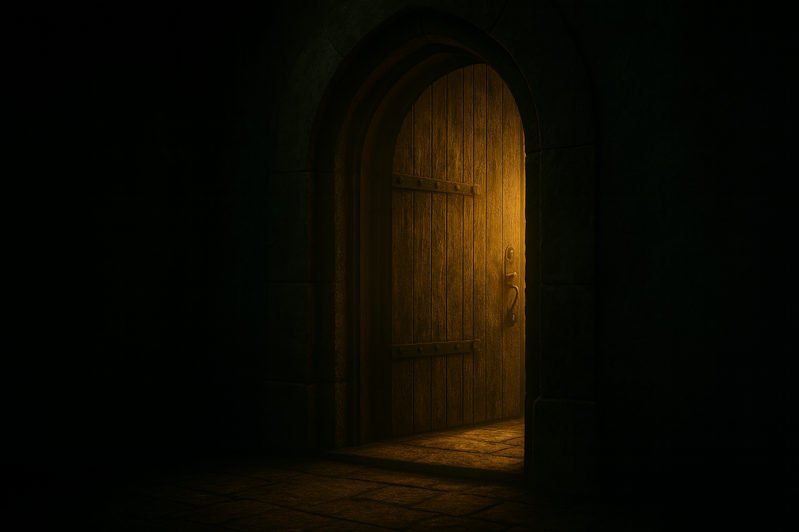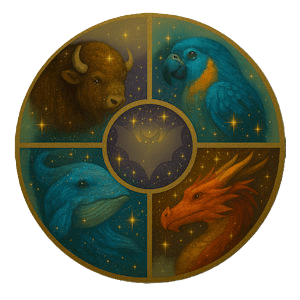
Why We Love Mysteries: The Fascinating Psychology
of the Unknown (2025)
Why we love mysteries is more than just a matter of taste—it’s written into how our minds work. From the thrill of an unsolved riddle to the pull of a locked door or an unfinished story, mysteries hold us in their grip. They spark our curiosity, keep us turning pages late at night, and make us lean closer when secrets are about to be revealed.
Psychologists suggest that mysteries appeal to the brain’s natural hunger for closure. When something is hidden, incomplete, or unknown, we feel a tension that begs to be resolved. This tension is not unpleasant—it’s exciting. It drives imagination, heightens focus, and gives us the rush of anticipation.
In this article, we’ll explore why mysteries are so irresistible: the psychology of curiosity, the thrill of suspense, and the timeless allure of hidden truths. From ancient myths to modern storytelling, mysteries have always been at the heart of human experience. And perhaps, they always will.
Why We Love Mysteries: What Makes Them So Irresistible?
At the heart of why we love mysteries is the simple truth that the unknown pulls us closer. A mystery creates what psychologists call an “information gap”: our brain senses that something is missing, and curiosity drives us to close that gap. This is why an unfinished story or a locked box can feel so magnetic—we want to know what lies beyond.
Mysteries also play directly into our brain’s reward system. Anticipation releases dopamine, the same chemical linked to pleasure and motivation. The moment before the truth is revealed often gives us more excitement than the answer itself. That is why cliffhangers in books or series keep us hooked, and why unanswered questions linger in our minds long after the lights are turned off.
Another reason we love mysteries is imagination. Unlike clear facts, mysteries leave space for us to wonder and invent possibilities. The human mind hates silence, so it fills the blanks with guesses, stories, and predictions. This act of imagining is not wasted energy—it is part of the thrill. Mysteries allow us to play with “what if” scenarios, testing out ideas in the safe space of thought.
Socially, mysteries are also irresistible. From ancient riddles to modern detective stories, people have gathered to puzzle, speculate, and share theories. The act of trying to solve something together creates bonds, even when the answer remains hidden. Mysteries invite discussion, debate, and storytelling, keeping them alive long after the original question was posed.
Ultimately, mysteries remain irresistible because they touch every layer of our experience: biology, imagination, and social connection. They keep us engaged, emotionally invested, and mentally active—all with the promise that the unknown will eventually reveal something worth uncovering.

Uncover
The Firefly Inn
Behind its lantern light, secrets wait to be revealed. Step closer, and choose your path into the unknown.
Curiosity and Suspense: How the Unknown Shapes the Mind
At the center of why we love mysteries lies the pull of the unknown. Curiosity and suspense are two sides of that pull: one gentle and playful, the other sharp and intense. Together, they explain why the hidden and the unresolved have such power over us.
Curiosity begins with what psychologists call an information gap : when we sense that something is missing, the brain feels a small but nagging tension. To resolve it, we lean forward, ask questions, or explore. This drive is tied to the brain’s reward system. Anticipation of new knowledge releases dopamine, the chemical linked to motivation and pleasure. That is why curiosity feels energizing rather than tiring—it gives us the spark to keep going, even when answers are far away.
Curiosity also fuels imagination. A locked door or an unfinished story leaves space for the mind to wander. We fill in the blanks with guesses, predictions, and “what if” scenarios. This act of inventing possibilities is itself rewarding: mysteries give us a playground for thought, letting us explore without consequences.
Suspense, on the other hand, is curiosity amplified. Where curiosity teases, suspense grips. It narrows our focus, raises our heartbeat, and makes us hold our breath. Unlike curiosity, which can be light and playful, suspense is emotional and intense. It creates investment: the longer the answer is withheld, the more energy we pour into imagining what might happen. The eventual reveal feels powerful not just because of the answer itself, but because of the emotions we tied to it along the way.
Both curiosity and suspense have a lingering effect. An unanswered question does not simply vanish; it whispers in the back of the mind, drawing us back to the story, the puzzle, or the symbol. This is why people return to unsolved mysteries, why cliffhangers keep us hooked, and why secrets hold their charm even when solutions remain out of reach.
Together, curiosity and suspense explain much of why we love mysteries. One invites us to explore, the other keeps us on edge. Both turn the unknown from something to fear into something we crave—an experience that is as timeless as human storytelling itself.

Uncover
The Firefly Inn
Behind its lantern light, secrets wait to be revealed. Step closer, and choose your path into the unknown.
Mystery in Storytelling: How Hidden Truths Shape Our Imagination
Mystery has always been at the heart of storytelling. From ancient myths to modern thrillers, hidden truths keep audiences engaged, forcing them to imagine what lies beyond the surface. Here are some of the ways mystery shapes the stories we tell:

- Ancient myths and riddles: Myths often held secrets, revealed only to those initiated into rituals or traditions. Riddles tested not just intelligence but patience, and their unresolved nature kept people returning to them across generations.
- Fairy tales and folklore: These stories thrive on hidden rules and strange conditions: doors that must not be opened, forests full of shadows, promises that conceal consequences. The unknown in these tales teaches both caution and wonder.
- Detective stories and thrillers: From locked-room puzzles to long-running crime series, mystery drives the narrative forward. Readers and viewers are not passive—they speculate, guess, and try to solve the puzzle alongside the characters.
- Suspense in film and television: Cliffhangers, foreshadowing, and unanswered questions keep audiences hooked. The tension between knowing and not knowing is what keeps people watching late into the night.
- Modern games and interactive stories: Mysteries are no longer limited to books and films. Escape rooms, mystery board games, and immersive experiences all use secrecy and hidden clues to engage imagination, turning players into active participants in the unfolding story.
Mystery, in every form of storytelling, creates a space where imagination comes alive. By holding back the full truth, stories give us the chance to wonder, to speculate, and to participate in the narrative.
Why Mysteries Matter: From Ancient Myths to Modern Games
Mysteries are not just entertainment—they have always played a deeper role in human life. From the earliest myths to the games we play today, the unknown has been used to teach, to bond, and to keep traditions alive.
In ancient cultures, mysteries were woven into rituals and sacred stories. Hidden knowledge gave people a sense of awe and respect for forces larger than themselves. Myths did not always provide clear answers; instead, they invited listeners to reflect, question, and search for meaning.
In folklore and fairy tales, mystery taught caution and imagination at the same time. Doors that must not be opened, forbidden forests, or cryptic warnings all reminded us that curiosity is powerful—and sometimes dangerous. These tales shaped moral lessons while keeping wonder alive.
In today’s world, mysteries continue to thrive in books, films, and games. Detective stories and thrillers reflect our hunger for resolution, while escape rooms and mystery games turn secrecy into shared adventure. The medium changes, but the pull remains the same: mystery connects us through the thrill of not knowing.
This is why mysteries matter. They are more than puzzles or suspense—they are a mirror of human nature. They remind us that life itself is full of questions, and that the search for answers can be just as meaningful as the answers we eventually find.
Conclusion: The Timeless Pull of Mystery
In the end, why we love mysteries is not hard to understand. The unknown excites our minds, sparks our imagination, and binds us together through shared wonder. Whether it is a riddle told around a fire, a novel that keeps us turning pages, or a game that hides its clues until the very last moment, mysteries remind us that questions can be just as powerful as answers.
Mysteries endure because they touch every part of human experience. Curiosity invites us to explore, suspense keeps us invested, and hidden truths give us stories worth retelling. They reveal that uncertainty is not something to fear but something to embrace—a spark that makes life more vivid and more meaningful.
That is why we love mysteries: because they mirror our endless search for meaning, and because the unknown will always hold a light that calls us closer.

Uncover
The Firefly Inn
Behind its lantern light, secrets wait to be revealed. Step closer, and choose your path into the unknown.




